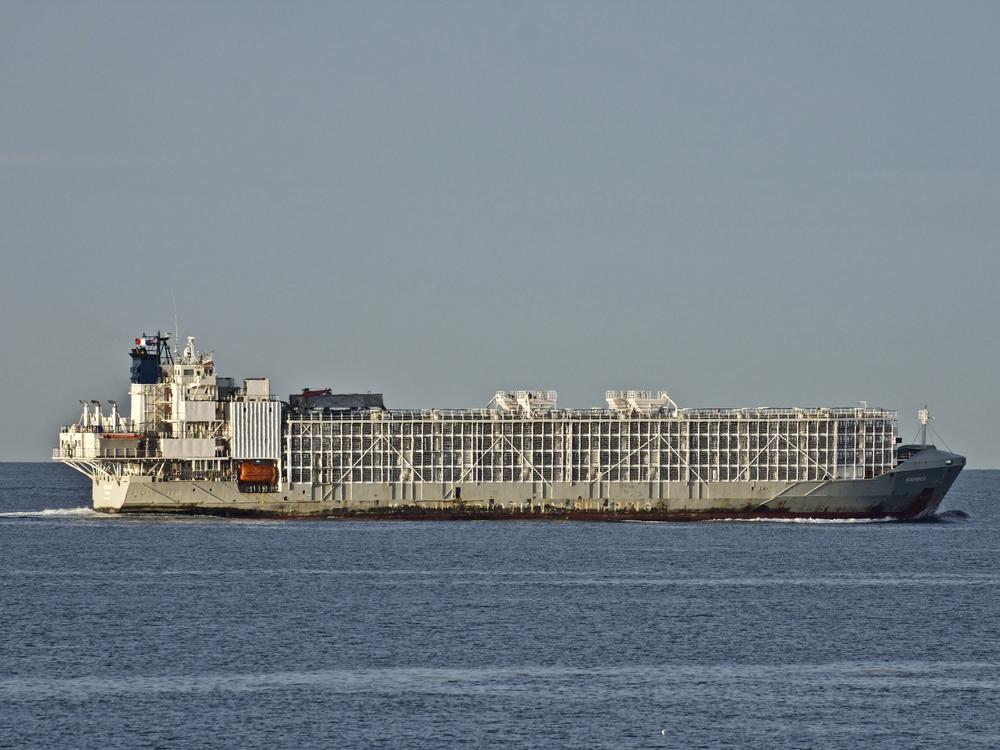Section Branding
Header Content
42 Crew, Nearly 6,000 Cows Missing After Ship Sinks In Storm-Tossed Seas Off Japan
Primary Content
A ship carrying more than 40 crew members and some 6,000 head of cattle has disappeared off the coast of Japan after capsizing in typhoon-lashed seas, according to a crew member who so far is the only known survivor.
The Gulf Livestock 1, en route from New Zealand to China, issued a distress call early Wednesday from a position west of Japan's Amami Oshima island.
The mayday call, to which the Japanese coast guard responded, was sent as Typhoon Maysak was tracking through the region as a powerful Category 4 storm.
Maysak has since passed the area where the ship went missing, and the weather for the ongoing search is fine, Japanese coast guard regional spokesman Yuichiro Higashi said, according to The Associated Press.
The 450-foot livestock carrier, built in 2002, had a crew of 43, of which 39 are from the Philippines, two from New Zealand and two from Australia, the Japanese coast guard said.
The Australian Broadcasting Corp. reported that a Queensland veterinarian, Lukas Orda, was among those aboard.
Photographs of the vessel taken before the accident show its deck stacked high with open livestock containers.
The lone crew member recovered so far, 45-year-old chief officer Sareno Edvarodo from the Philippines, was plucked from the water Wednesday night after being spotted by a Japanese navy P-3C surveillance aircraft. No wreckage from the ship has been found, the coast guard said.
Edvarodo told rescuers that the vessel lost an engine and then capsized when it was hit broadside by a wave. The crew was then ordered to don life jackets. Edvarodo said he abandoned ship but did not see any other crew members in the water after the ship sank.
Gulf Livestock 1 was carrying 5,867 head of cattle from Napier, New Zealand, to Jingtang in Tangshan, China, according to New Zealand's foreign ministry, Reuters reported.
Following the accident, New Zealand's Ministry for Primary Industries said it was temporarily suspending new cattle livestock export applications pending an investigation.
The ministry "wants to understand what happened on the sailing of the Gulf Livestock 1," a spokesperson was quoted as saying by the New Zealand Herald.
Splash247.com, a website that follows the shipping industry, noted numerous accidents involving livestock carriers over the years in which tens of thousands of animals were lost.
In November, the Queen Hind, a livestock carrier loaded with more than 14,000 sheep, experienced "maneuvering issues" and capsized not far from a wharf. Only a few hundred animals were rescued, according to The Maritime Executive. In 2016, 3,000 sheep died aboard a vessel that caught fire and sank in rough weather off Somalia.
In another similar disaster nearly a quarter-century ago, some 67,000 sheep died aboard a vessel after it caught fire and was abandoned by its crew east of the Seychelles. All but one of the crew survived.
Copyright 2020 NPR. To see more, visit https://www.npr.org.

